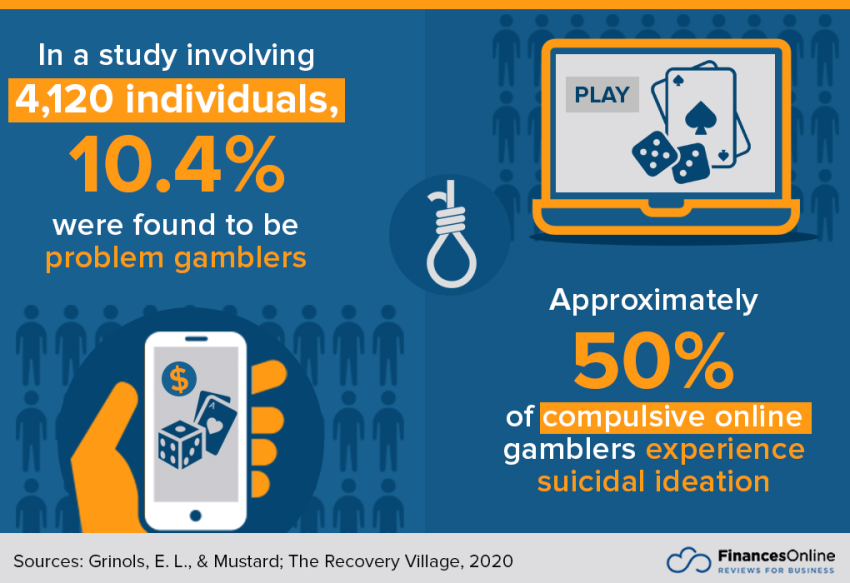Gambling facts reveal a fascinating yet complex landscape that many often overlook. It is no secret that the global gambling market is booming, with substantial gambling revenue providing a significant boost to economies worldwide. In fact, recent gambling statistics indicate that the online gambling growth has surged, reshaping how people engage with gaming and betting. However, this rapid expansion also brings to light concerning issues, including gambling addiction, which can have profound impacts on individuals and families. Understanding these essential gambling facts empowers us to make informed choices and advocate for responsible gaming practices in this thriving yet risky industry.
When we delve into the realm of gaming and wagering, it’s critical to illuminate the compelling dimensions of this industry. The world of betting and gaming encompasses substantial financial movements and cultural shifts, significantly influencing global economies. The rise in digital gambling platforms points to a transformative phase in consumer behavior, where traditional establishments are rapidly complemented by online alternatives. As we engage in discussions about these trends, particularly the phenomenon of gaming addiction, it becomes evident that broader awareness and strategic intervention are indispensable. By exploring the intricate dynamics of the gambling ecosystem, individuals can better navigate the exciting yet perilous paths it offers.
Understanding Gambling Facts and the Global Market
The gambling industry has undergone significant transformations in recent years, prompting a reevaluation of how we perceive gambling. Eye-opening gambling facts reveal an explosion in the global gambling market, estimated to reach **$540 billion** by 2023, a stark increase from previous years. Such a substantial jump underscores the growing acceptance of gambling as a mainstream activity, influenced by changing consumer preferences and technology. With the rapid growth of online platforms that cater to diverse audiences, the gambling industry has continued to expand its reach, removing barriers and allowing people to engage with gambling in ways that were previously unimaginable.
However, this growth comes with a set of challenges, particularly regarding gambling addiction and its associated statistics. As the industry flourishes, so too do the potential risks involved with gambling behaviors. Understanding the dynamics of gambling from a social perspective necessitates an exploration of education, prevention measures, and the role that support systems play in managing gambling addiction. As we delve deeper into these gambling facts, it is essential to balance the excitement and revenue potential of the industry with foresight and consideration for health and ethical implications.
The Surge of Online Gambling and Its Impact
The surge of online gambling has transformed the landscape significantly, with estimates indicating a staggering **35.2%** growth in revenue, reaching **$5 billion** in 2025. This trend highlights how technology has reshaped the gambling experience, making it more accessible than ever before. Gamblers can now place bets or play games from the comfort of their homes or even on the go, eliminating traditional barriers associated with in-person gambling. As people increasingly take advantage of these platforms, the potential for gambling addiction grows exponentially, raising crucial concerns among communities and policymakers alike.
Moreover, this growth correlates with increased gambling revenue, posing a dual-edged sword for society. On one hand, the online gambling sector provides economic benefits, creating jobs and driving revenue streams. On the other hand, the ease of access to gambling becomes a double-edged sword, leading to impulsive gambling behaviors and significant financial pitfalls for vulnerable individuals. The industry’s responsibility now includes ensuring that education and prevention measures are put in place to protect gamblers, fostering a culture of responsible gambling that prioritizes mental health along with economic gain.
Frequently Asked Questions
What are the key gambling statistics that highlight the growth of the global gambling market?
The global gambling market is projected to be worth approximately $540 billion in 2023, showcasing a significant increase from $249 billion the previous year. By 2029, this market size is expected to reach $754.78 billion, driven by factors like regulatory changes and technological advancements. Notably, the U.S. gambling revenue surpassed $54.9 billion in 2025, reflecting a robust recovery and increasing participation in online gambling, which grew by 35.2% to reach $5 billion.
How significant is gambling addiction in the context of gambling facts and statistics?
Gambling addiction is a critical concern, with research indicating that 0.1% to 5.8% of individuals worldwide may struggle with severe gambling problems. This variability underscores the need for enhanced education and awareness regarding gambling addiction’s implications. As the gambling landscape evolves—especially with the rise of online platforms—addressing the issue of gambling addiction is essential for promoting responsible gambling habits and protecting vulnerable players.
| Key Points | Details |
|---|---|
| Record Gambling Revenue in the US | In 2025, the US gambling industry surpassed $54.9 billion in revenue, a 6.7% increase from 2021. |
| Rapid Growth of Online Gambling | The online gambling sector grew by 35.2% to reach $5 billion, largely due to mobile technology. |
| Global Gambling Industry Size | The global gambling industry is valued at approximately $540 billion in 2023, expected to reach $754.78 billion by 2029. |
| Gambling Addiction Statistics | Prevalence of severe problem gamblers ranges from 0.1% to 5.8% globally, necessitating enhanced educational initiatives. |
| Geographical Revenue Distribution | The Asian market accounts for 31.3% of total gambling revenue, influenced by local customs and regulations. |
Summary
Gambling facts reveal the intricate and multifaceted world of the gambling industry, a sector that has soared to unprecedented heights with record revenues. This evolution not only highlights the immense economic impact of gambling over the years but also underscores the risks associated with gambling addiction. As we delve deeper into these gambling facts, it becomes clear that enhanced education and responsible gaming practices are critical to mitigating the pitfalls of this thriving industry. The interplay between gambling’s entertainment value and its potential hazards invites an ongoing conversation among stakeholders, ensuring that society can enjoy the benefits while advocating for safer gambling environments.
